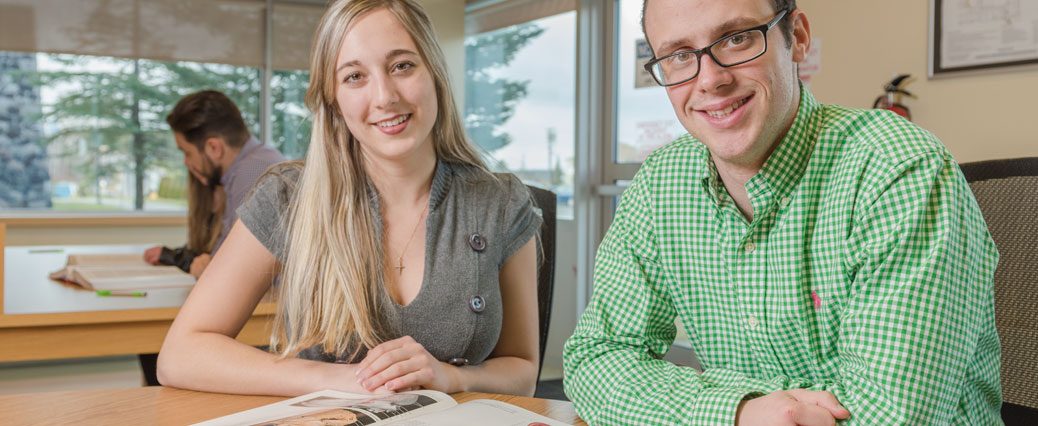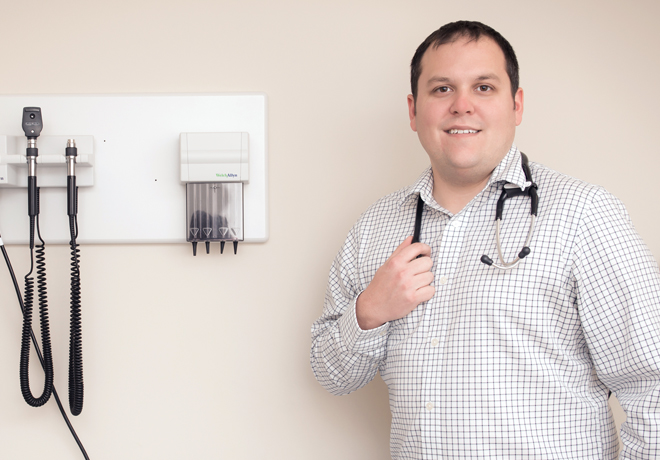The Northern Ontario School of Medicine (NOSM) is pleased to announce the appointment of Dr. Paul Miron as Program Director of the School’s Family Medicine Residency Program, effective June 30, 2018.
Miron—an alumnus of NOSM’s MD program—is a family physician and clinician-educator who practices in Timmins, Ontario where he has been the Family Medicine Residency Program Site Director for the past four years. He obtained his faculty appointment at NOSM five years ago and has been teaching medical students and residents in the classroom and clinical setting ever since. As Site Director, Miron undertook a comprehensive review and redesign of assessment tools and processes for residents in Family Medicine, which led to the creation of the Competency Coach Program. He continues to review and strengthen this important aspect of residency teaching and learning
“We are fortunate to have Paul join our team in this capacity,” says Dr. Tom Crichton, NOSM’s interim Associate Dean of Postgraduate Education. “He has worked tirelessly for Postgraduate Education and has also ingrained himself within NOSM’s Undergraduate Medical Education Program in various roles. We are incredibly proud of Paul, as he is our first NOSM MD graduate to hold this position.”
“We would also like to thank Dr. Stacy Desilets for her dedicated service as Program Director for the past three years,” says Crichton. “Stacy completed her residency through the Ottawa Northern Stream residency program based in Northeastern Ontario, just before NOSM’s inception. The Family Medicine program at the Northern Ontario School of Medicine has benefited greatly from Stacy’s leadership as she implemented annual competency coach training sessions, developed new maternity and obstetric simulation workshops, built the program evaluation plan and led a revision of the academic and research curriculum.”





